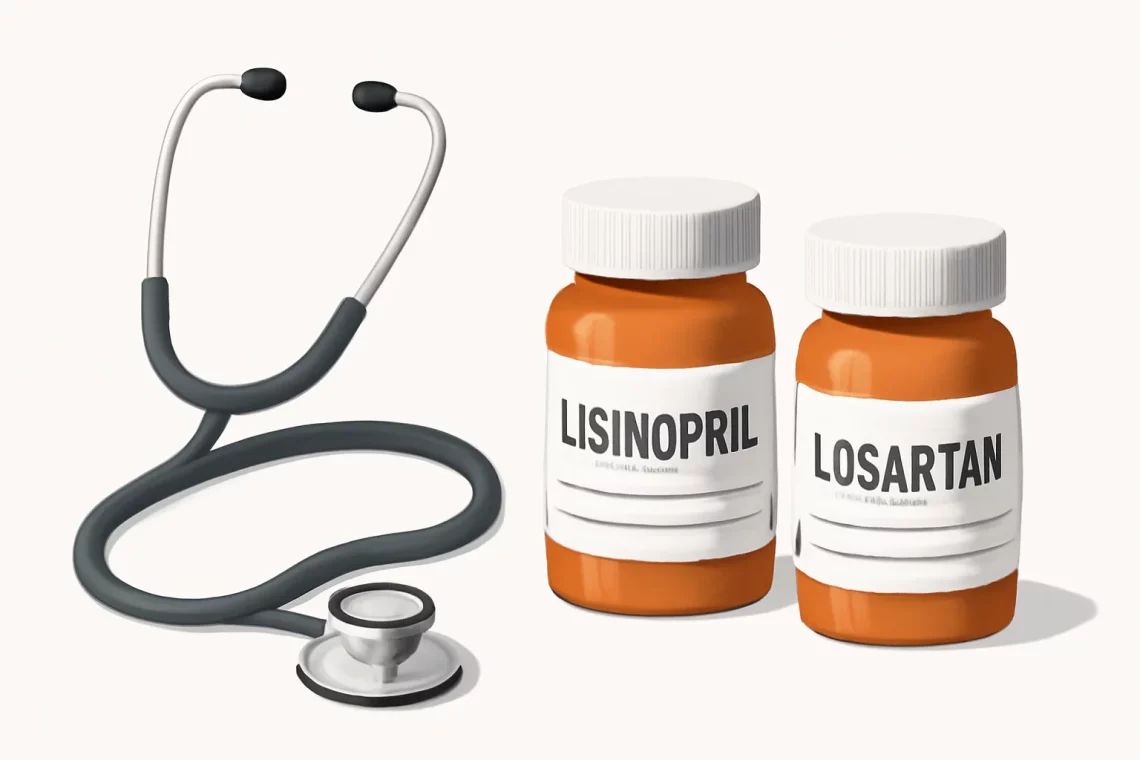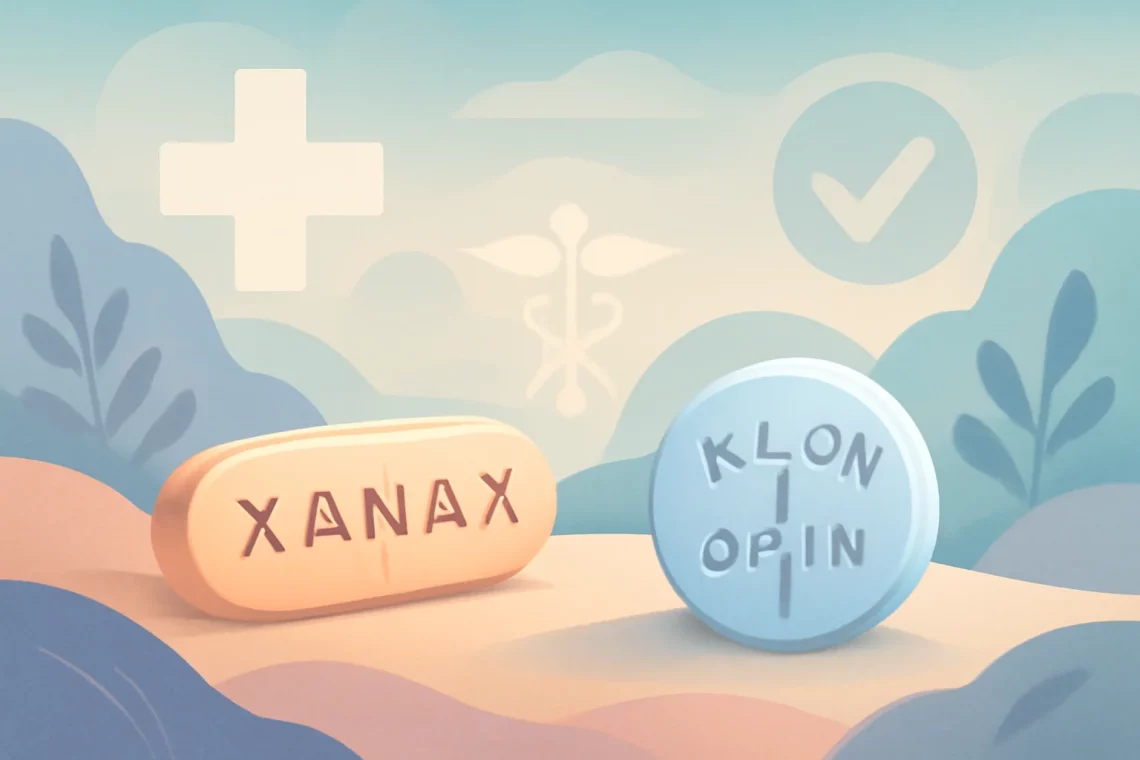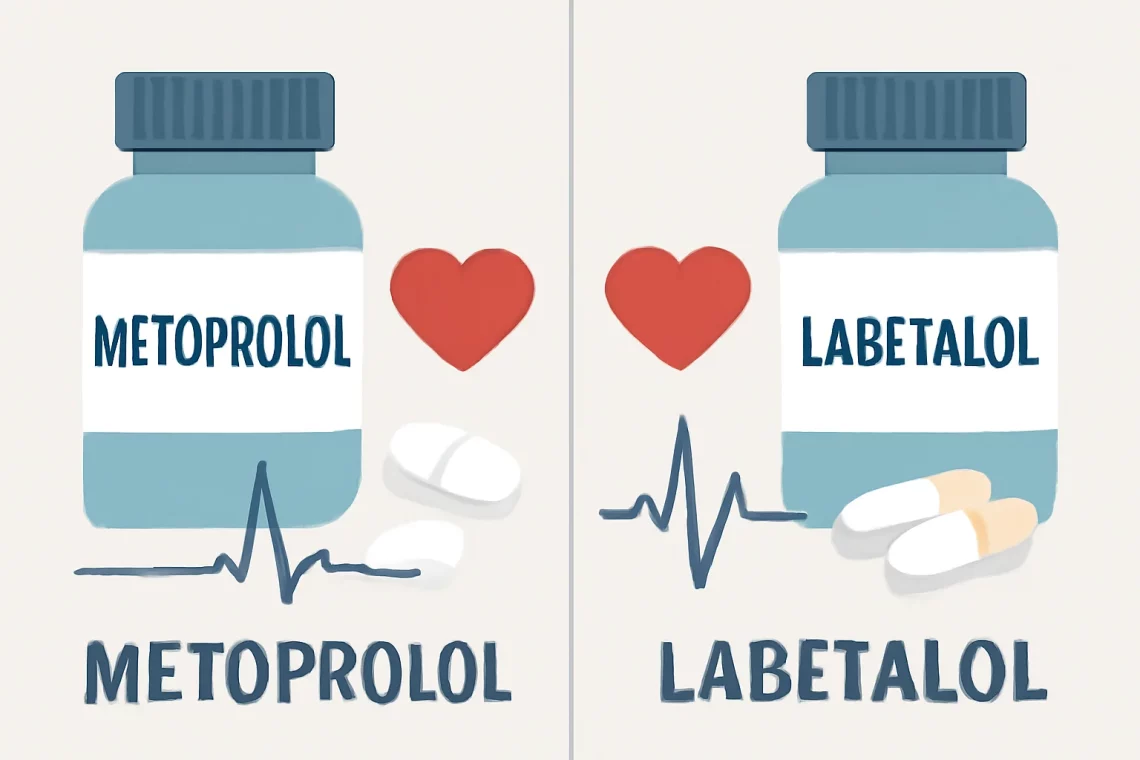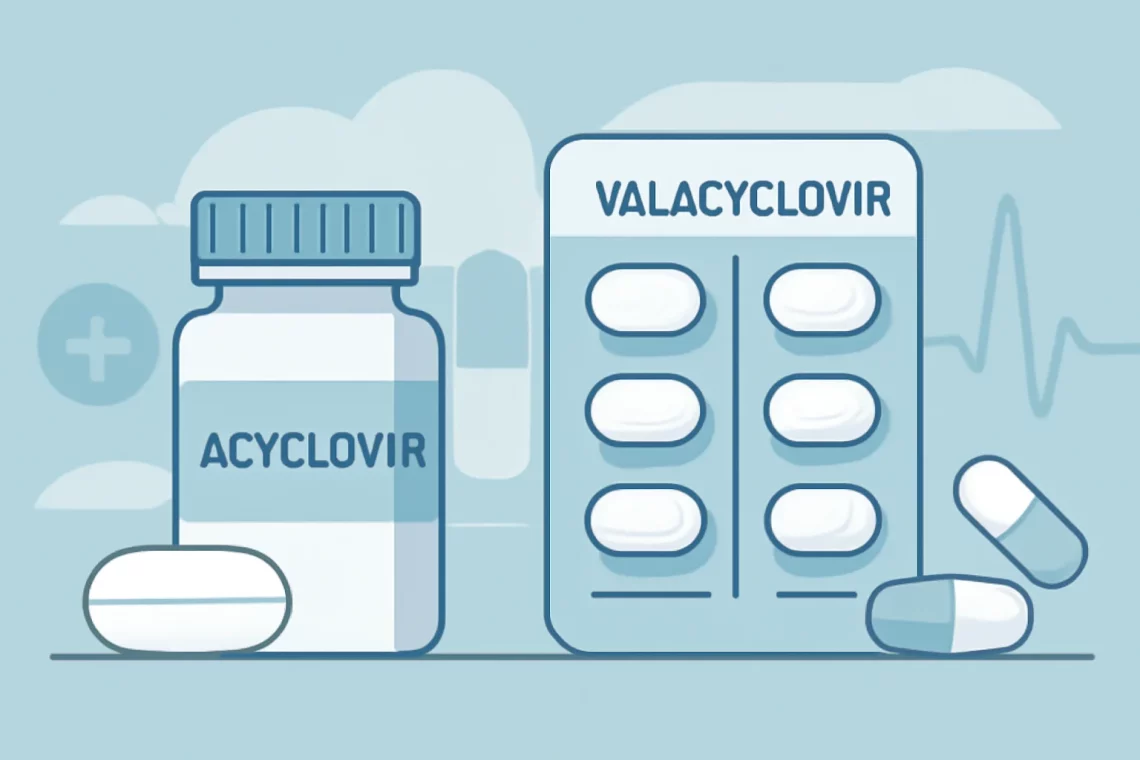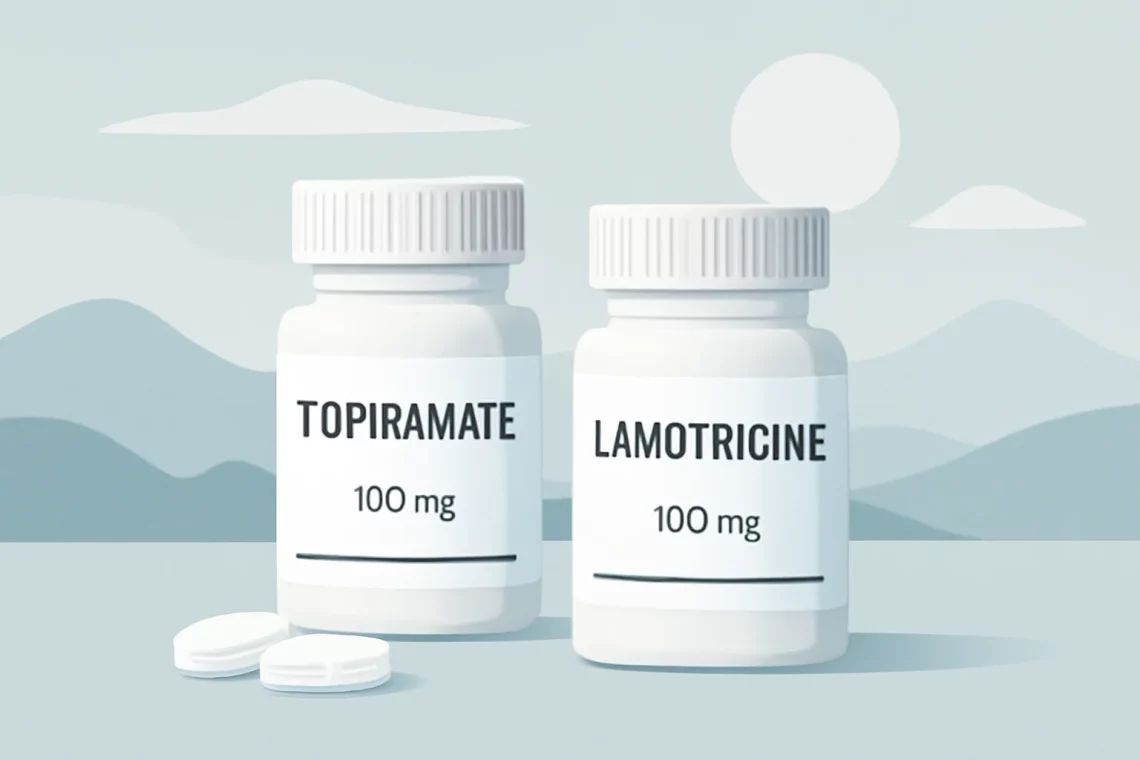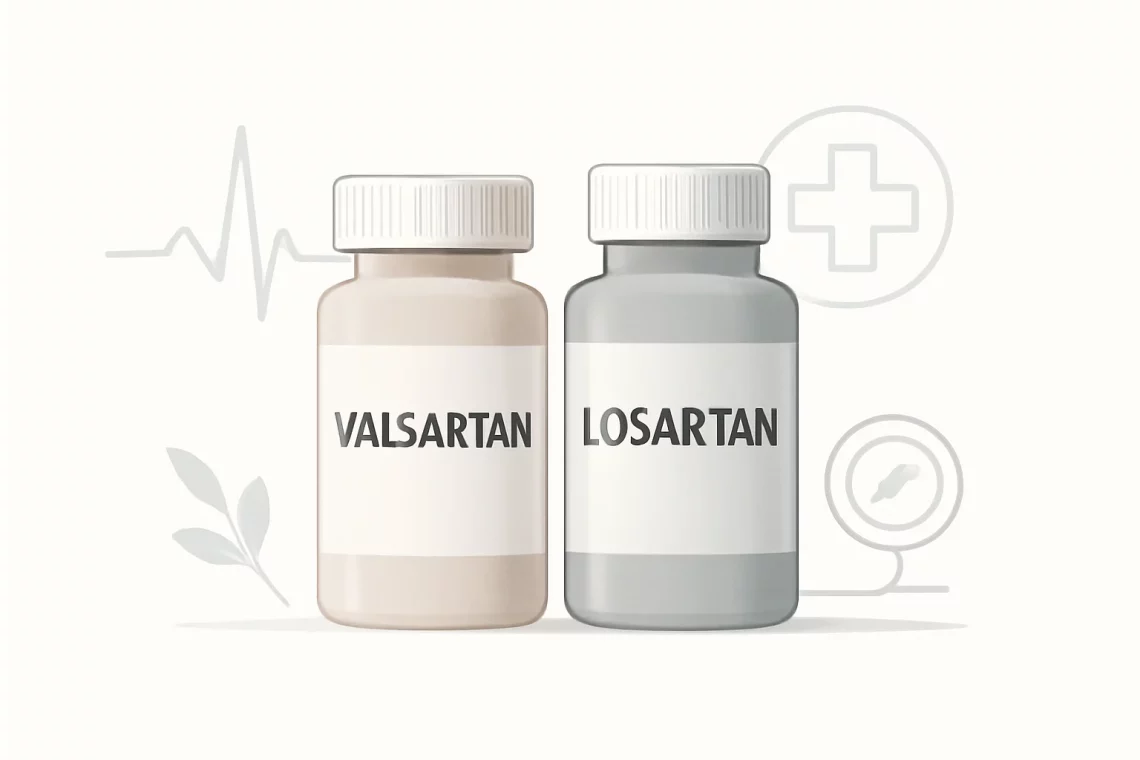-
Lisinopril vs Losartan: Choosing the Right Medication for You
High blood pressure, also known as hypertension, is a prevalent health issue affecting millions of people worldwide. It often goes unnoticed, earning it the title of a “silent killer.” If left untreated, high blood pressure can lead to severe complications, including heart disease, stroke, and kidney failure. To combat this condition, healthcare professionals often prescribe medications that help regulate blood pressure levels. Among these medications, Lisinopril and Losartan are two commonly used drugs that belong to different classes but serve similar purposes. Lisinopril is an angiotensin-converting enzyme (ACE) inhibitor, whereas Losartan is classified as an angiotensin II receptor blocker (ARB). Despite their different mechanisms of action, both medications effectively lower…
-
Xanax vs Klonopin: Understanding the Differences and Uses
Xanax and Klonopin are both medications that belong to a class known as benzodiazepines, widely prescribed for the management of anxiety disorders and certain other mental health conditions. The increasing prevalence of anxiety-related issues in today’s fast-paced world has led to a greater reliance on these medications. While both Xanax and Klonopin are effective in alleviating anxiety symptoms, they differ in their chemical composition, duration of action, and specific uses. Understanding these differences is crucial for patients and healthcare providers alike, as it can significantly influence treatment decisions and outcomes. Benzodiazepines work by enhancing the effects of a neurotransmitter called gamma-aminobutyric acid (GABA) in the brain, which leads to calming…
-
Metoprolol vs Labetalol: Key Differences and Clinical Uses Explained
Metoprolol and labetalol are both beta-blockers, a class of medications widely used in the management of cardiovascular conditions. These drugs work by blocking the effects of adrenaline on the beta receptors in the heart, leading to reduced heart rate and blood pressure. While both medications serve similar purposes, they differ in their pharmacological profiles, indications, side effects, and mechanisms of action. Understanding these differences is crucial for healthcare providers and patients alike, as it can significantly impact treatment outcomes. Metoprolol is often prescribed for conditions such as hypertension, angina, and heart failure, while labetalol is frequently used for managing high blood pressure, particularly in acute settings. The choice between these…
-
Ciprofloxacin vs Levaquin: Understanding Their Differences and Uses
Ciprofloxacin and Levaquin are two widely used antibiotics, both belonging to the fluoroquinolone class of medications. These drugs are often prescribed to treat bacterial infections, ranging from urinary tract infections to respiratory conditions. Despite their similarities, each medication has its own unique characteristics, indications, and potential side effects. Understanding the differences and applications of Ciprofloxacin and Levaquin can help patients and healthcare providers make informed decisions about treatment options. While both medications target bacterial infections, they may vary in effectiveness depending on the type of bacteria involved and the severity of the infection. Furthermore, the choice between these antibiotics may also depend on the patient’s medical history, potential drug interactions,…
-
Acyclovir vs Valacyclovir: Which is the Better Choice for Treatment?
Acyclovir and valacyclovir are two antiviral medications commonly used to treat infections caused by certain types of viruses. Both drugs are primarily prescribed for conditions related to the herpes virus, which can manifest in various forms, including genital herpes, shingles, and cold sores. The importance of understanding the differences and similarities between these two medications cannot be overstated, as they play a crucial role in managing viral infections effectively. Acyclovir has been a staple in antiviral therapy for several decades, while valacyclovir, a prodrug of acyclovir, has gained popularity due to its improved pharmacokinetics. This means that valacyclovir is converted into acyclovir in the body, allowing for better absorption and…
-
Trazodone vs Ambien: Which Sleep Aid Is Right for You?
Sleep disorders have become increasingly prevalent in today’s fast-paced world, where stress and anxiety often interfere with a good night’s rest. As individuals seek solutions to their sleep-related issues, various medications have emerged as popular treatments. Among these, Trazodone and Ambien are two commonly prescribed options, each with distinct mechanisms and applications. Understanding the differences between these medications is crucial for those considering them as part of their sleep management strategy. Both Trazodone and Ambien have gained recognition for their effectiveness in promoting sleep, yet they operate in unique ways and cater to different patient needs. Trazodone, originally developed as an antidepressant, has been found to have sedative properties that…
-
Loratadine vs Levocetirizine: Which Antihistamine is Right for You?
Allergies can significantly affect daily life, often leading to discomfort and decreased productivity. As the prevalence of allergic conditions continues to rise, effective management through medication has become a priority for many individuals. Among the most commonly prescribed antihistamines, Loratadine and Levocetirizine are frequently considered options for alleviating allergy symptoms. These medications serve as first-line treatments for allergic rhinitis and other allergic reactions, but they differ in several key aspects, including their chemical structure, efficacy, side effects, and dosage recommendations. Understanding these differences is essential for patients and healthcare providers alike, as it can guide them in making informed decisions regarding the most suitable treatment option. As we delve into…
-
Topiramate vs Lamotrigine: Choosing the Right Treatment Option
The choice between topiramate and lamotrigine is an important consideration for individuals dealing with epilepsy, mood disorders, or other neurological conditions. Both medications play a significant role in managing seizures and stabilizing mood, yet they operate through different mechanisms and come with distinct profiles of efficacy and side effects. Understanding these differences is crucial for patients and healthcare providers alike, as it can impact treatment outcomes and overall quality of life. Topiramate, an anticonvulsant, is renowned for its efficacy in seizure control and is often prescribed for conditions like migraines and bipolar disorder. Lamotrigine, on the other hand, is primarily utilized for its mood-stabilizing properties, particularly in the treatment of…
-
Topiramate vs Lamotrigine: Which Medication Is Right for You?
Topiramate and lamotrigine are two medications commonly prescribed for the treatment of various neurological and psychiatric conditions, particularly epilepsy and bipolar disorder. Both of these drugs have gained recognition for their effectiveness in managing symptoms, but they differ significantly in their mechanisms of action, side effects, and therapeutic uses. Understanding these differences is crucial for patients and healthcare providers when deciding on the most appropriate treatment plan. Topiramate, marketed under various brand names, is primarily used as an anticonvulsant and is also prescribed for migraine prevention. It works by stabilizing electrical activity in the brain, thereby reducing the frequency of seizures and migraine attacks. On the other hand, lamotrigine is…
-
Valsartan vs Losartan: Which Blood Pressure Medication is Right for You?
Valsartan and Losartan are two well-known medications primarily used to treat high blood pressure and other cardiovascular conditions. Both belong to a class of drugs called angiotensin II receptor antagonists, which work by blocking the action of a hormone that can cause blood vessels to constrict. This leads to a decrease in blood pressure and an overall improvement in heart health. While both medications share similar mechanisms and therapeutic benefits, they also possess distinct characteristics and differences that can influence a healthcare provider’s decision when prescribing them. As heart disease remains a leading cause of morbidity and mortality worldwide, understanding the nuances of such medications is crucial. Patients often find…
